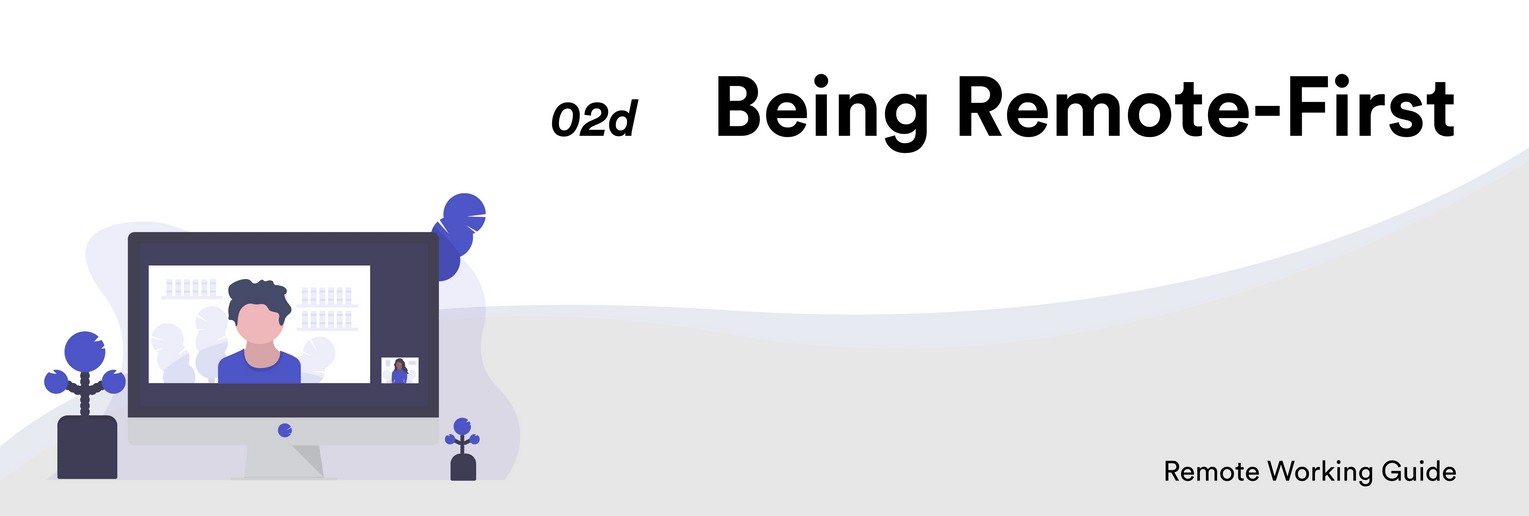
# Remote First Companies - Being Remote First
When I was first introduced to the concept of remote working, I never truly appreciated the various levels of remote that a company could adopt. Below is a graphic created by Buffer that tries to categorise the way a company could approach remote working.

So, we can see that it is not really a 0 to 1 switch. There are many intermediate levels that could also be implemented.
At the core of this graphic is the mentality behind opting for employees to work remotely. Is it being approached as a perk, an enabler or a way of life? The underlying motive does matter, as it has a rub-off effect on the working environment and general team culture.
# What is the difference between remote-friendly and remote first companies?
For ease of comparison, this underlying motivation can be categorised as being either remote-friendly OR remote-first. The basic difference is that in the former we would choose to "allow" employees to work remotely rather than "empowering" them to do so, as in the latter, the case of remote first companies. Being remote-friendly results in remote team members falling to the bottom 😮.
Since, it might not be entirely clear why this would happen, let's try to look at this through an example of a remote-friendly culture:
Consider your weekly or monthly in-office team meetings with remote team members joining in on call. It is very likely that side conversations spring up naturally, with dialed-in members losing lot of context and ultimately getting marginalised in the conversations. Haven't we all experienced this at some point?
This context enables us to put Eric Yuan's (Zoom's CEO) following comment in perspective, as it is not a simple decision to just "allow" his team to start working remotely from tomorrow.
# How do we build a truly remote-first culture?
Building a remote-first culture, as the name suggests, involves designing processes that are first inclusive of remote employees, rather than that being an afterthought. Here are some points from experts at remote first companies to set the right tone:
- Be intentional: According to Darren, All Remote Culture Curator at Gitlab, the key for every company looking to go remote is to be highly intentional about everything. It is very easy for individuals and companies to default to processes that would work in a typical co-located setting, which can be very dangerous. Therefore, a conscious and intentional approach to everyday work is needed to make remote work successful.
You could listen to him share this specific feedback here: Link (opens new window)
“From the employer’s standpoint, two things come to mind. You need to be extremely intentional about informal communication. And this is a big one because when you are in a co-located setting, people tend to cross paths so they can more naturally develop relationships in and outside of work which generally helps the morale of the company. In a remote setting, you need to be intentional about this. So you need to weave things like coffee chats, group social calls, team social calls, company calls. You need to weave that into the culture and carve out time company-wide to make this a thing.”
- Darren Murph, Head of Remote at Gitlab
- Default to videoconferencing for meetings: Justine Jordan, Head of Marketing at HelpScout, put it beautifully in a report prepared by Trello. She essentially suggested that if even a single person is remote for a particular meeting, then everyone else also moves to a remote approach. This ensures a level playing field for all, where ideas and information can be consumed in an equal fashion.
"Unless every person is in the same room, all meetings are held over video conference. We’ve all been that one person dialing into a call only to hear a room full of noise, echo, and side conversations on the other end. It’s a terrible experience. So when one person is “remote” for a meeting, everyone is.
- Justine Jordan, Head of Marketing at HelpScout
- Team offsite bonding: It is important for remote workers and in-office employees to get to meet each other outside the digital setting. Apart from actually getting to know people's personalities and forming personal bonds, this allows for them to also exchange perspectives. This naturally improves productivity and collaboration in remote-first companies as now individuals can relate to the people they are working with at a much better level.
"The Retreats are huge. If we didn't do that, we would have lost a lot of people. But because they got to know me, my co-founder, their teams, the managers, developers, each other - it brings out a sense of belonging. It is only for a week, but it is really big!"
- Dave Nevogt, Co-founder & CEO of Hubstaff



